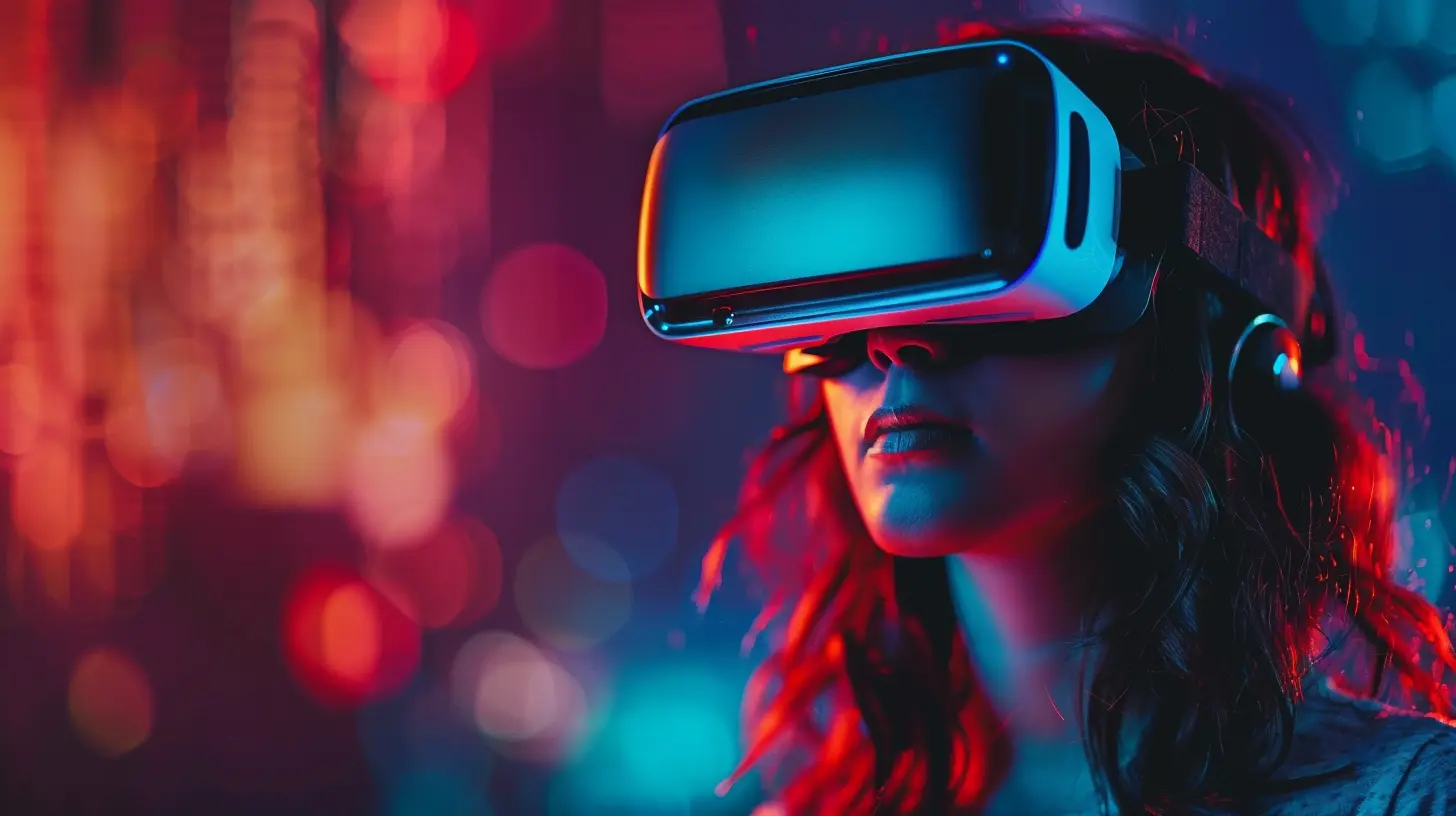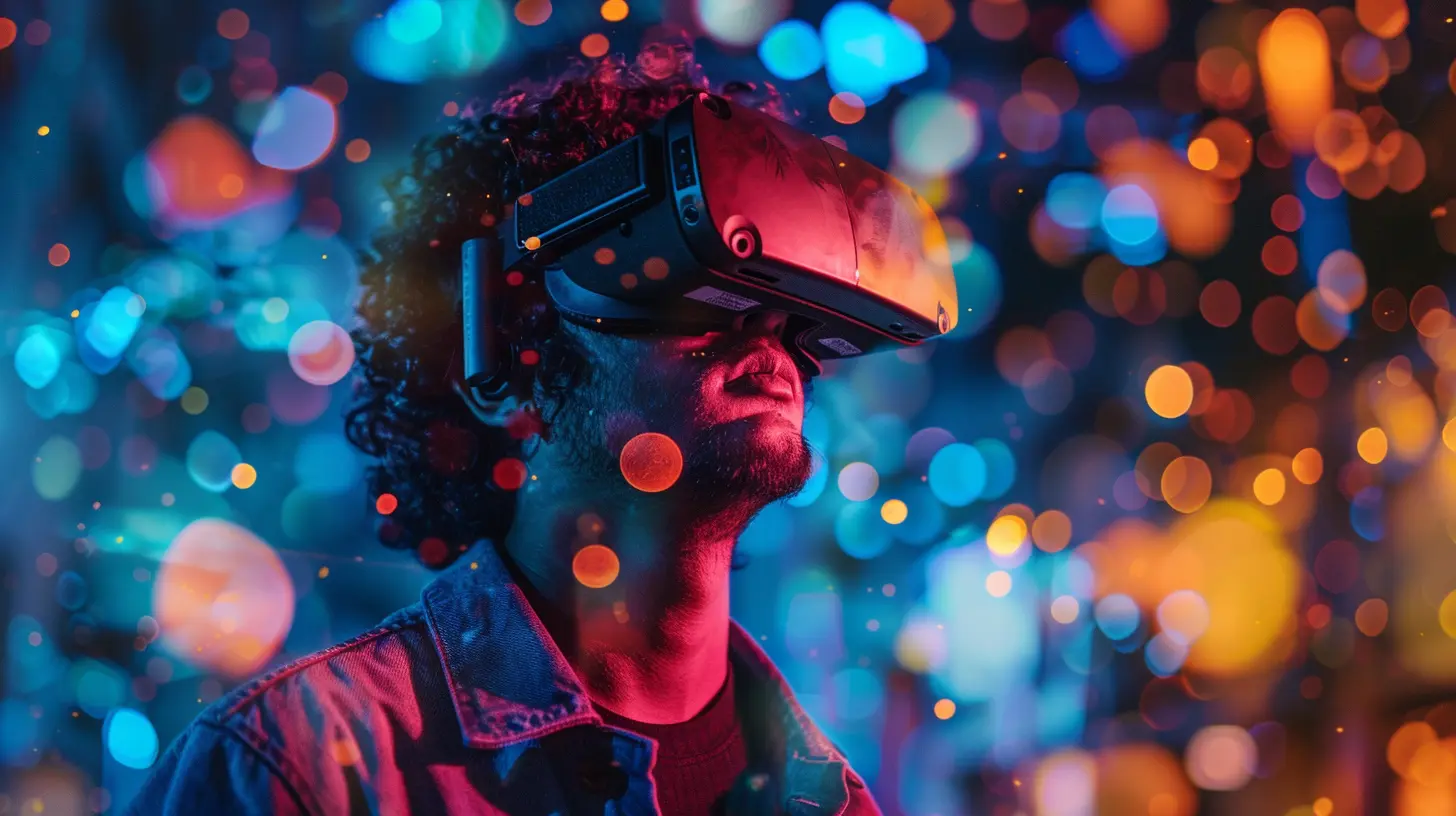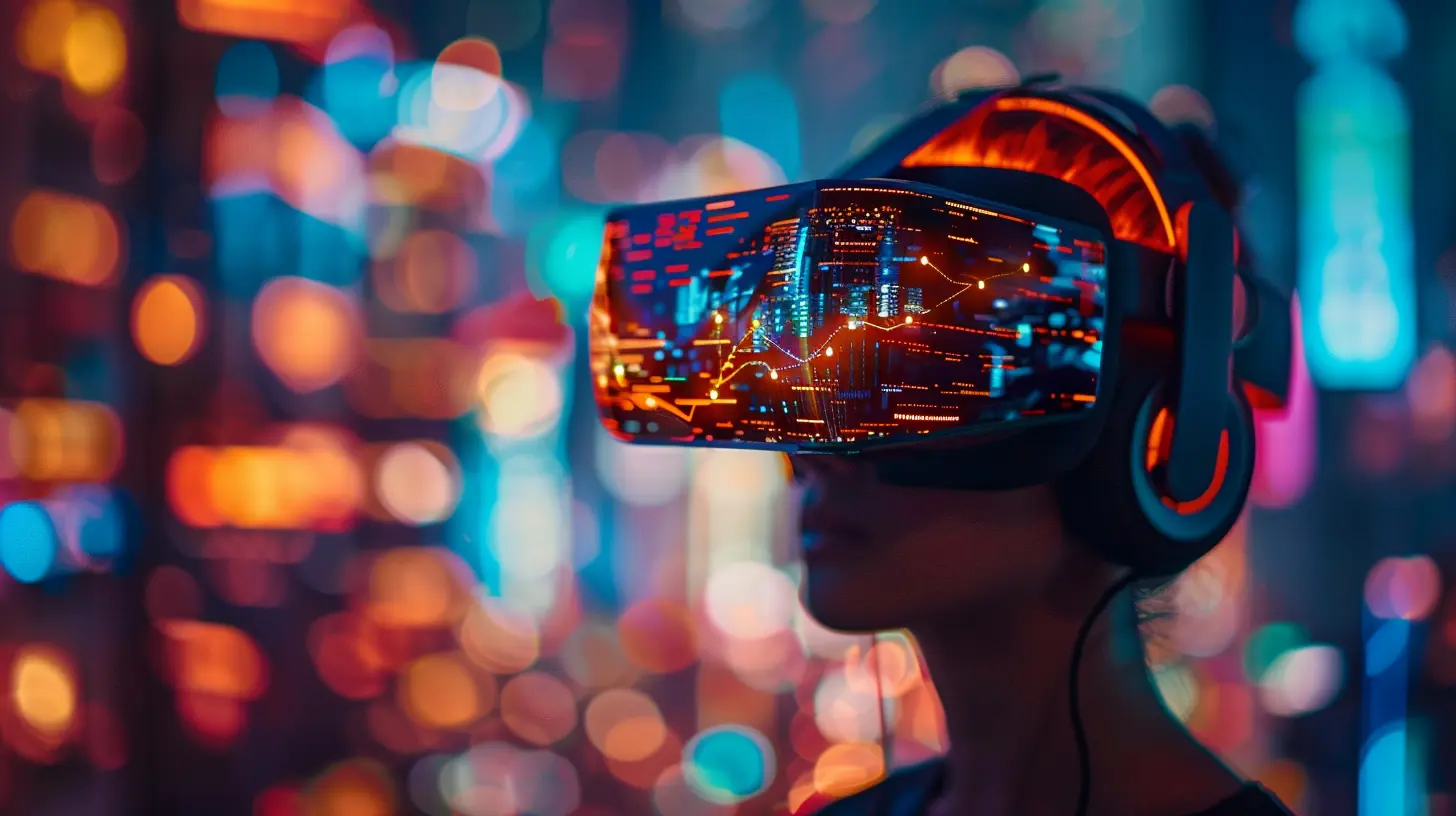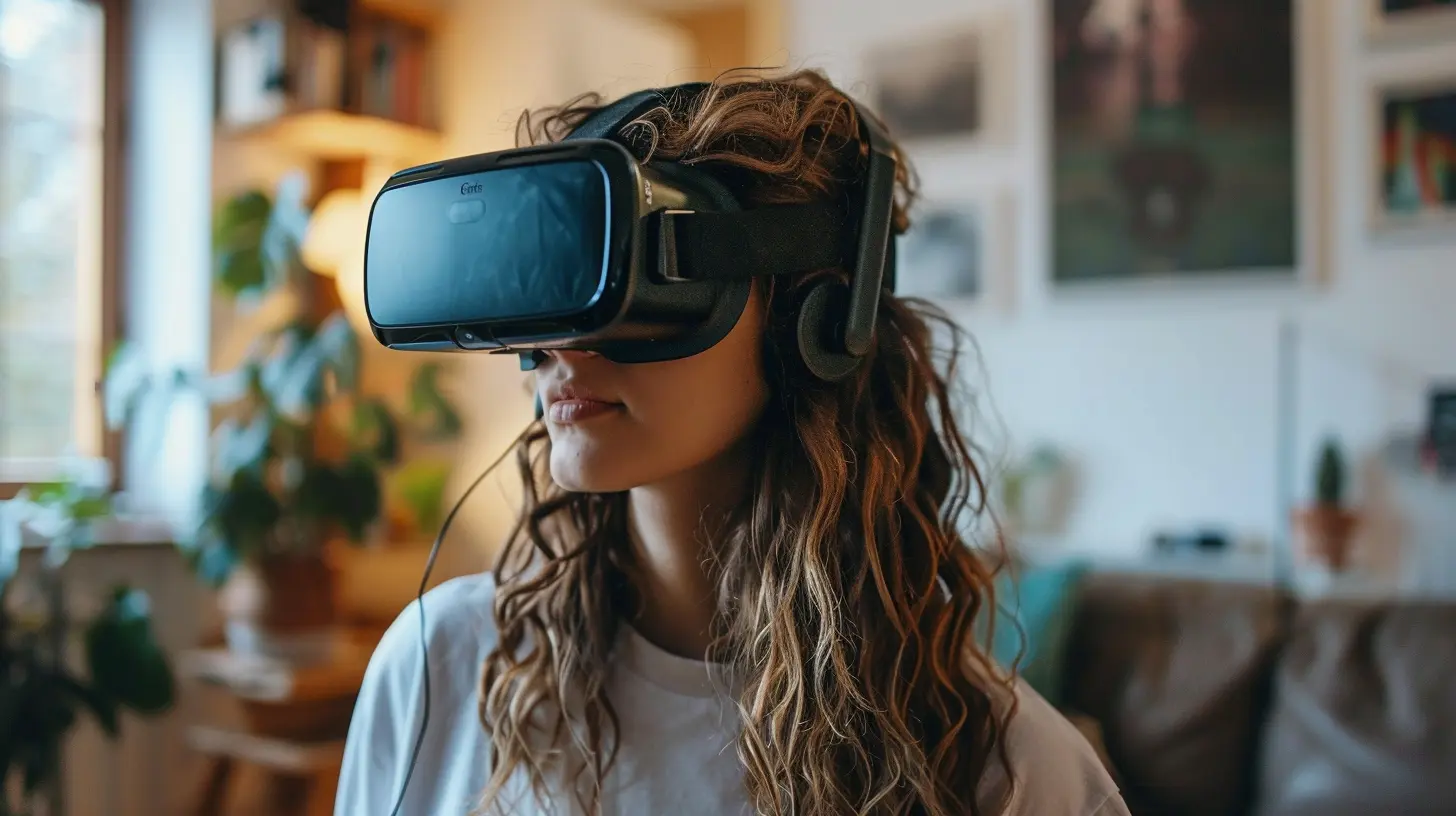Exploring the Psychological Impact of Virtual Reality
9 September 2025
Virtual Reality (VR) has come a long way from being a science-fiction fantasy to a technology that is reshaping how we experience the world. Whether it's gaming, therapy, education, or social interaction, VR is redefining human experiences in ways we never imagined. But here’s the big question—how does it affect our minds?
From tricking our brains into believing in alternative realities to influencing emotions, behaviors, and even mental health, VR is a psychological game-changer. But like any powerful tool, it comes with both benefits and risks. Let’s dive deep into the psychological impact of VR and how it shapes the way we think, feel, and behave.

The Brain on Virtual Reality
Our brains are incredibly adaptable. They process sensory information to build a perception of reality, and VR takes full advantage of that. It immerses us in digitally created environments so convincingly that our brains perceive them as real.But how does that work? It boils down to presence—the feeling that you're physically present in a virtual world. The more realistic the environment and interactions, the stronger the sensation of presence. This is why you might feel dizzy standing on a VR skyscraper’s edge, even though you know you're safely in your living room.
This level of immersion can have profound psychological effects—both positive and negative.

The Positive Psychological Effects of VR
1. VR as a Therapeutic Tool
VR is revolutionizing mental health treatment. Therapists are using VR to treat a range of conditions, including:- Phobias and anxiety: VR exposure therapy allows individuals to confront their fears in a controlled environment. Afraid of public speaking? VR can simulate an audience so you can practice confidently.
- PTSD treatment: Veterans and trauma survivors are benefiting from VR simulations that help desensitize them to traumatic memories.
- Depression and loneliness: Virtual worlds offer safe spaces for social interaction, reducing feelings of isolation.
2. Enhanced Learning and Training
Ever wished you could teleport into a history book? With VR, you can! Schools and workplaces are embracing VR for immersive learning experiences.- Medical training: Surgeons can practice complex procedures in a risk-free virtual setting.
- Job training: Firefighters, pilots, and military personnel use VR for real-life scenario-based training.
- Education: Students can explore ancient civilizations, walk through a human cell, or conduct science experiments—all without leaving the classroom.
3. Pain Management and Physical Rehabilitation
VR is even changing the way we experience pain. Patients undergoing painful medical treatments can use immersive environments to distract their brains from discomfort. Studies show that VR can reduce pain perception just as effectively as some pain medications.For stroke survivors and people recovering from injuries, VR-based physical therapy makes rehab more engaging. Imagine playing a game where moving your arm is the key to winning—suddenly, therapy becomes fun instead of frustrating.

The Dark Side of VR: Potential Psychological Risks
As exciting as VR is, it’s not without its downsides. Spending too much time in virtual worlds can come with serious psychological consequences.1. VR Addiction: When Virtual Feels Better Than Reality
Let’s face it—VR can be incredibly immersive and, for some, dangerously addictive. People who struggle with social anxiety, depression, or dissatisfaction with real life may start escaping into virtual worlds rather than dealing with their real-world challenges.Gaming addiction is already a major concern, and VR takes it to another level. When virtual experiences feel more rewarding than reality, it can be hard to unplug.
2. Motion Sickness and Cognitive Effects
Ever felt dizzy after taking off a VR headset? That’s called motion sickness, and it happens when your brain gets conflicting signals—your eyes think you're moving, but your body knows you're not. This disconnect can cause dizziness, nausea, and fatigue.Extended VR use has also raised concerns about cognitive effects like memory impairment and reduced attention spans. Some studies suggest that excessive VR exposure can blur the line between real and virtual experiences, potentially impacting perception and decision-making.
3. Emotional Desensitization and Identity Confusion
VR allows users to step into different personas, which can be both empowering and problematic. Spending too much time as an avatar can lead to identity confusion, where the boundaries between self and digital persona become unclear.There’s also the concern of emotional desensitization. If someone spends hours committing violent acts in VR games, could it dull their emotional responses in real life? While research is still ongoing, it’s something psychologists are keeping a close eye on.

Virtual Reality and Social Interactions
VR isn’t just about solo experiences—it’s changing the way we connect with others. Platforms like VRChat and Meta’s Horizon Worlds allow users to interact in ways that mimic real-world socialization. But does this help or harm our real-life relationships?The Pros:
- VR enables long-distance friends and family to spend time together in an immersive way.
- People with social anxiety can practice interactions in a controlled environment.
- It fosters inclusivity, allowing individuals with disabilities to participate in experiences that might be difficult in the real world.
The Cons:
- Over-reliance on VR socialization may weaken real-world communication skills.
- Some users may struggle to differentiate between virtual friendships and real-life connections.
- There are concerns about VR bullying and harassment, as anonymity can sometimes encourage toxic behavior.
The Future of Virtual Reality and Mental Well-Being
VR is still evolving, and its psychological impact is an open book. As technology advances, we must craft ethical guidelines to maximize its benefits while minimizing risks.Developers need to create VR experiences that prioritize users' mental well-being rather than just engagement and profits. Meanwhile, psychologists must continue studying how long-term VR exposure affects the human brain.
For individuals, the key is balance. VR is an incredible tool, but like anything else, moderation is important. Use it to enrich your life, not escape from it.
Final Thoughts
Virtual reality is no longer a distant dream—it’s here, and it's reshaping how we think, learn, and interact. Its ability to trick our brains into believing in digital worlds is both fascinating and concerning. While it holds transformative potential for therapy, education, and socialization, it also comes with psychological risks that shouldn’t be ignored.So, the next time you put on a VR headset, take a moment to reflect—how is this technology affecting your mind? And more importantly, are you still grounded in reality?
all images in this post were generated using AI tools
Category:
Psychological ResearchAuthor:

Nina Reilly
Discussion
rate this article
1 comments
Zedric Phelps
This article beautifully highlights how virtual reality can reshape our understanding of the mind. It's inspiring to see technology unlocking new therapeutic pathways, offering hope and healing for many. Thank you for sharing these insights!
September 18, 2025 at 3:08 AM

Nina Reilly
Thank you for your kind words! I'm glad you found the insights on virtual reality's impact on the mind inspiring. Your support means a lot!


